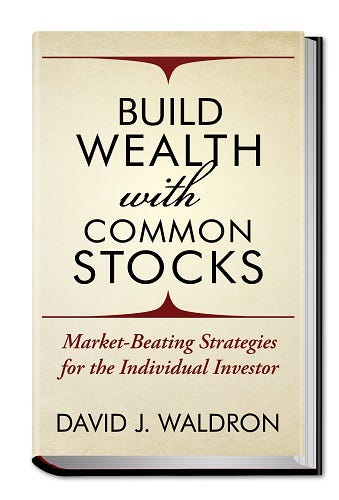
Summary
CVS Health is reemerging as a one-stop neighborhood healthcare store for insurance, primary care, and prescriptions.
The stock's shareholder yields are almost doubling the Ten-Year Treasury, thanks to improved free cash flow and a rising dividend rate.
However, returns on management and valuation multiples are a mixed bag of outcomes, although downside risks remain below average.
In this updated research report, Quality Value Investing maintains its overall investment thesis of hold based on a neutral view of the company and a neutral view of the stock.
Nonetheless, here is why QVI concludes that CVS Health is an individual investor toss-up based on personal metric preferences.
Premium subscribers: When referencing this research report, access your Quality Value Investing Glossary of Investing Terms and Metric Targets. Unless noted, all data presented is sourced from Seeking Alpha Premium as of the market close on March 13, 2023, and intended for illustration only.
CVS Health Value Proposition
QVI Research Report's value proposition section provides a brief synopsis of the company's business model, major-exchange listing, stock symbol, market capitalization, and dividend-paying status. In addition, it defines the competitive advantages of a company's products or services to its customers compared to the industry, including the stock's historical performance vs. the sector and market.
CVS Health Corporation (NYSE: CVS) is a dividend-paying large-cap stock in the health care services industry of the health care sector. CVS was added to the QVI Concentrated Portfolio on January 18, 2018, at a split and dividend-adjusted $68.47 a share.
CVS Health Corporation provides health services in the United States. It operates through Health Care Benefits, Pharmacy Services, and Retail/LTC segments.
The Health Care Benefits segment offers traditional, voluntary, and consumer-directed health insurance products and related services. It serves employer groups, individuals, college students, part-time and hourly workers, health plans, health care providers, governmental units, government-sponsored plans, labor groups, and expatriates.
The Pharmacy Services segment offers pharmacy benefit management solutions, including plan design and administration, formulary management, retail pharmacy network management, mail order pharmacy, specialty pharmacy and infusion, clinical, and disease and medical spend management services. It serves employers, insurance companies, unions, government employee groups, health plans, prescription drug plans, Medicaid managed care plans, plans offered on public health insurance and private health insurance exchanges, other sponsors of health benefit plans, and individuals. In addition, this segment operates retail specialty pharmacy stores, specialty mail-order, mail-order dispensing, and compounding pharmacies, as well as branches for infusion and enteral nutrition services.
The Retail/LTC segment sells prescription and over-the-counter drugs, consumer health and beauty products, and personal care products. In addition, it provides health care services through its MinuteClinic walk-in medical clinics. This segment also distributes prescription drugs; and provides related pharmacy consulting and ancillary services to care facilities and other care settings.
The company was formerly known as CVS Caremark and changed its name to CVS Health in September 2014. CVS Health Corporation was incorporated in 1996 and is headquartered in Woonsocket, Rhode Island, USA.
QVI's value proposition elevator pitch for CVS Health:
CVS Health is reemerging as a one-stop neighborhood healthcare store for insurance, primary care, and prescriptions.
Performance vs. Sector and Market
The chart below illustrates CVS's performance against the Health Care Select Sector SPDR® Fund ETF (NYSE: XLV) and the SPDR® S&P 500 ETF Trust (NYSE: SPY) since QVI's initial coverage of CVS Health in January 2018.
For example, CVS has underperformed its sector and the broader market in total returns during the coverage timeframe. Notably, despite a rising price, the stock further lagged XLV and SPY during the coronavirus pandemic due to its predominant on-ground retail footprint.
Due Diligence Resources
For a more in-depth analysis of the all-important value proposition, visit CVS Health's investor relations webpage and its most recent Form 10-K Annual Report submitted to the U.S. Securities and Exchange Commission or SEC.
QVI's value proposition rating for CVS Health: Bullish.
CVS Total Returns vs. XLV and SPY
CVS Health Corp (CVS) Total Return: 12.62%
Health Care Select Sector SPDR ETF (XLV) Total Return: 53.55%
SPDR S&P 500 ETF (SPY) Total Return: 50.67%
Since January 18, 2018 (as of March 13, 2023)CVS Shareholder Yields
QVI Research Report's shareholder yields section uncovers the equity bond rate of the company's common shares. It aims to quantify the yields on earnings, free cash flow, and dividends to measure how the targeted stock compares to the prevailing yield on the 10-Year Treasury benchmark note.
Earnings and Free Cash Flow Yields
CVS's earnings yield traded below the floor at 4.09%, as demonstrated in the below chart. However, at 13.34%, CVS's free cash flow yield traded well above the targeted threshold.
As inverse valuation multiples, the earnings and free cash flow yields suggest that CVS trades at a slight premium to earnings but at a steep discount to free cash flow. QVI will further explore valuation multiples later in this report.
Dividend Yield
CVS Health offers a modest but growing forward dividend yield of 2.96%, supported by a conservative 25.11% payout ratio, thus indicating a safe dividend rate with room for additional annual increases.
CVS yielded 3.53% from an annual payout of $2.42 on a split- and dividend-adjusted cost basis of $68.47 per share on January 18, 2018, the date of QVI's initial stock coverage. Thus, our yield-on-cost basis was flatlining at +57 basis points [bps] above the forward yield.
Average of Shareholder Yields
Quality Value Investing takes the average of the three shareholder yields to measure how the stock compares to the prevailing yield of 3.55% on the 10-Year Treasury benchmark note. For example, the average shareholder yield for CVS was 6.80% or +325 bps above the 10-Year and 6.99% or +344 bps above the Treasury yield when using the January 2018 yield-on-cost basis.
QVI's shareholder yields rating for CVS: Bullish.
CVS Shareholder Yields
CVS Health Corp (CVS) Price: $76.31
CVS Health Corp (CVS) Earnings Yield: 4.09%
CVS Health Corp (CVS) Free Cash Flow Yield: 13.34%
CVS Health Corp (CVS) Dividend Yield: 2.96%
One-Year Trailing (as of March 13, 2023CVS Health Fundamentals
QVI Research Report's fundamentals section measures the performance strength of the company's senior management by analyzing revenue growth, net profit margin, and returns on equity and invested capital.
Revenue Growth and Net Profit Margin
Per the below chart, CVS Health had positive three-year annualized revenue growth of 10.39%, in line with the 11.57% median growth of the health care sector.
Further down the income statement, CVS Health had a trailing three-year double-digit net profit margin of +2.67%, topping the sector's median net margin of -7.07%.
Returns on Equity and Invested Capital
CVS Health's management was producing a trailing three-year return on equity or ROE of +10.85%, below the targeted threshold but far outperforming the sector's median ROE of -39.86%.
Stock buyback programs often elevate ROE. For example, CVS Health's board of directors authorized repurchases of up to $10 billion annually in 2021 and 2022.
At +5.54%, CVS Health's three-year return on invested capital, or ROIC, is far below the QVI threshold but trounces the sector's median ROIC of -22.02%, indicating that its senior executives are competitive capital allocators.
On the contrary, CVS Health's ROIC barely covers its weighted average cost of capital or WACC of 4.71%. (Source of WACC: GuruFocus).
CVS Health's management performance contradicts itself from positive revenue growth, plus sector-beating net profit margins, and returns on equity and invested capital, as the latter three metrics are significantly below QVI’s targeted thresholds.
QVI's fundamentals rating for CVS Health: Neutral.
CVS Returns on Management
CVS Health Corp (CVS) Revenue Growth: 10.39%
CVS Health Corp (CVS) Profit Margin: 2.67%
CVS Health Corp (CVS) Return on Equity: 10.85%
CVS Health Corp (CVS) Return on Invested Capital: 5.54%
Three-Year Trailing Median (as of March 13, 2023)CVS Valuation, Risks, and Investment Thesis
Next, QVI dives into the valuation multiples, downside risks, potential catalysts, and overall investment thesis of CVS Health Corporation (CVS). Let’s dig further after reading the required disclosures and background information.
Disclosure: I/we have a beneficial long position through direct ownership of CVS shares in our family portfolio. I wrote this article myself, and it expresses my own opinions. I am not receiving compensation for it (other than from Substack paid subscriptions). I have no business relationship with any company whose stock is mentioned in this article.
Additional disclosure: Quality Value Investing by David J. Waldron’s primary ticker research reports are for informational purposes only. The accuracy of the data cannot be guaranteed. Narrative and analytics are impersonal, i.e., not tailored to individual needs nor intended for portfolio construction beyond his family portfolio, which is presented solely for educational purposes. David is an individual investor and author, not an investment adviser. Readers should always engage in their own research or due diligence and consider (as appropriate) consulting a fee-only certified financial planner, licensed discount broker/dealer, flat fee registered investment adviser, certified public accountant, or specialized attorney before making any investment, income tax, or estate planning decisions.
About the Writer
David J. Waldron is the founder and contributing editor of Quality Value Investing and author of the international-selling book, Build Wealth with Common Stocks. David’s mission is to inspire the achievement of his readers’ financial goals and dreams. He received a Bachelor of Science in business studies as a Garden State Scholar at Stockton University and completed The Practice of Management Program at Brown University. David and his wife, Suzan, reside in historic South Central Pennsylvania, USA.
Preview David’s Book
Readers can preview Build Wealth with Common Stocks here: https://davidjwaldron.com/build-wealth-with-common-stocks.html, including links to over 25 booksellers worldwide.
Bonus: Founding Members of QVI on Substack receive a personalized complimentary copy of the case laminate hardcover edition of the book from the author.
Keep reading with a 7-day free trial
Subscribe to Quality Value Investing to keep reading this post and get 7 days of free access to the full post archives.




